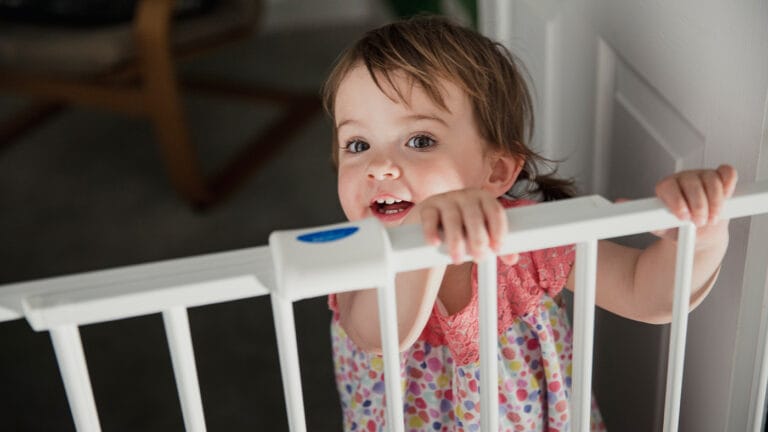For many kids, seasonal allergies can be more than just a mild annoyance. Common symptoms include a stuffy or runny nose, sneezing, itchy eyes and nose, sore throat, cough, and dark circles under the eyes. Some of the more significant consequences of allergies in children include:
- Fatigue and poor concentration in school due to lack of sleep
- An increase in ear and sinus infections
- Asthma flares
- Behavioral problems from discomfort and lack of sleep
So it’s no wonder so many parents find themselves Googling what types of allergy medications are safe for their child to take! Before trying medications, there are many at-home treatments that can help alleviate mild to moderate allergy symptoms, including:
- Having your child wash their hands and face as soon as they come in from playing outside so they won’t rub pollen in their eyes and nose.
- You can also have your child take their bath at bedtime, as this will help with nighttime allergy problems since they all allergens from the day will get rinsed off, including any that has settled in their hair.
- Using air purifiers or filters, and keep windows and doors closed to prevent pollen and other allergens from entering the home.
- Using saline rinses can help flush out allergens and mucus from the nasal passages, relieving congestion and other symptoms.
Tried all of the above and your child is still suffering and you’re ready to try some medications? The good news is that there are many options. But, when it comes to allergy medications for children, it’s important to consult your pediatrician or pediatric provider before you dose. The appropriate remedy will depend on the type and severity of the allergy and the child’s age, weight, and overall health. Here are some general guidelines and options for seasonal or pet allergies:
- Antihistamines: These medications can help relieve symptoms such as runny nose, itchy eyes, and sneezing. There are both prescription and over-the-counter (OTC) antihistamines available, but OTC options like loratadine (Claritin) or cetirizine (Zyrtec) are typically safe for children. However, dosages will vary depending on the child’s age and weight. Follow the instructions on the package, or ask your pediatrician.
- Nasal sprays: Nasal sprays, such as those containing steroids, can help reduce inflammation in the nasal passages and relieve symptoms like congestion and sneezing. Nasal sprays should only be used under the guidance of your pediatrician or pediatric provider.
- Eye drops: Eye drops, such as those containing antihistamines, can help relieve itchy or irritated eyes. As with nasal sprays, eye drops should only be used under the guidance of a healthcare provider.
- Allergy shots: Also known as immunotherapy, allergy shots can help reduce the severity of allergy symptoms over time by gradually exposing the body to the allergen. This is a long-term treatment and can typically only be administered under the guidance of a qualified physician.
It’s also important to not overlook the source. There may be things inside your home you can adjust to help reduce allergens for your child and improve air quality for the entire family. If your child suffers from allergies, our pediatricians recommend these interventions to support any therapies:
- Keep your home clean: Regularly cleaning the home can help reduce the amount of dust, pet dander, and other allergens that accumulate on surfaces. Vacuum carpets and upholstery frequently, and wash bedding and curtains in hot water.
- Control humidity levels: Although humidity isn’t typically a problem in Utah’s dry climate, some houses may be overly moist because of leaks or moisture from basement areas. High humidity can encourage the growth of mold and dust mites, which can trigger allergies. Try and keep home humidity levels between 30-50%.
- Use allergy-proof bedding: Cover mattresses, pillows, and duvets with allergy-proof covers to prevent dust mites from accumulating.
- Remove carpeting: Carpets and draperies can trap dust and other allergens, so consider replacing carpets with hardwood or tile flooring—especially if you inherited the carpet with your home.
- Use air filters: HEPA (High-Efficiency Particulate Air) filters can help trap allergens and other particles in the air. Consider using a HEPA filter in your child’s bedroom or other areas of the home where they spend a lot of time.
- Avoid smoking indoors: Cigarette smoke is unsafe for all kids but can also worsen allergies and asthma symptoms.
- Keep pets out of the bedroom: If a child is allergic to pets, keeping them out of their bedroom can help reduce their exposure to pet dander.
Fortunately, there are many options to help reduce your child’s suffering from allergies. But if allergies are preventing your child from enjoying life, call your pediatrician!





